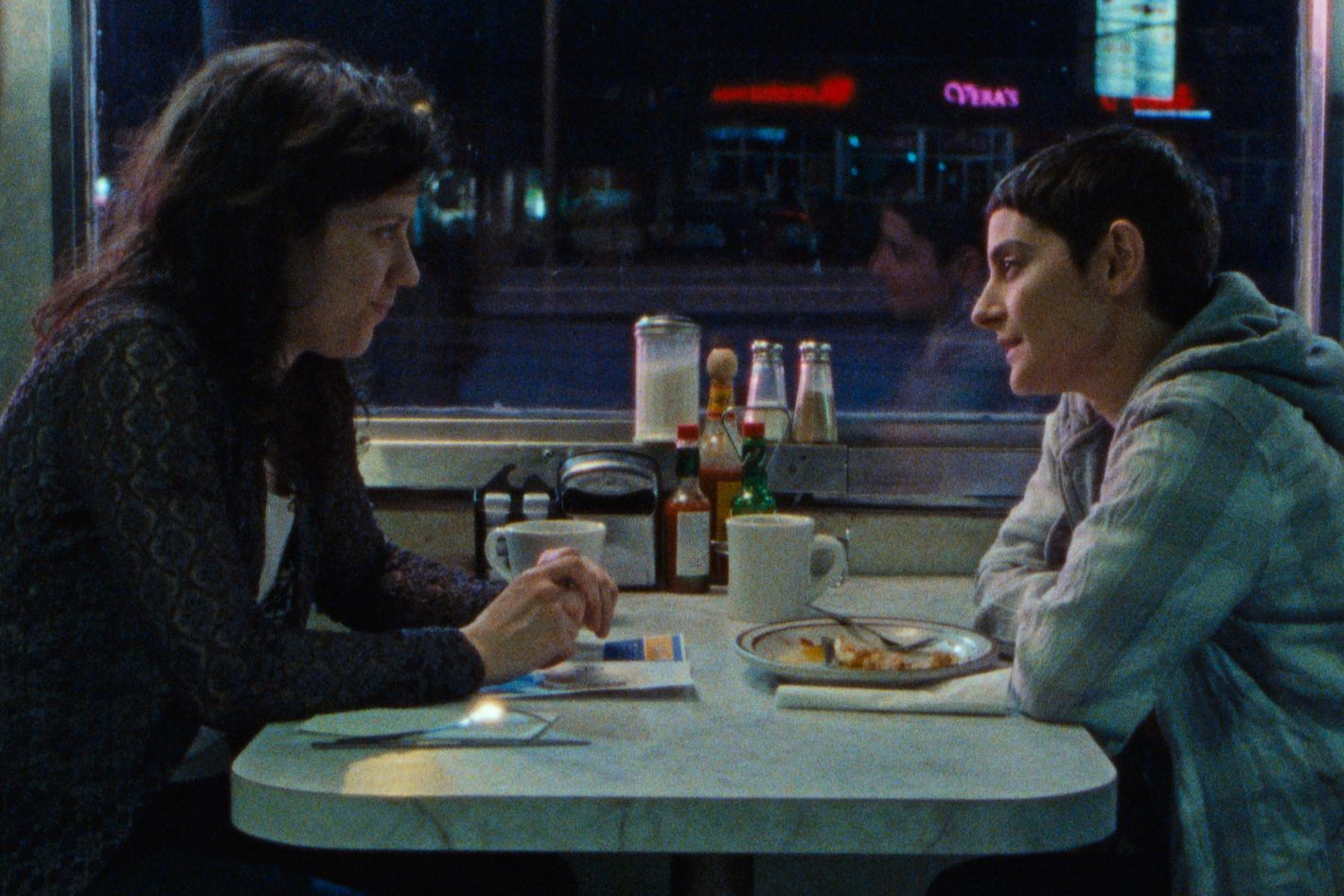Gazer Is a Reminder of When Indie Films Were Exciting


Newark, New Jersey, doesn’t get showcased onscreen all that often — almost never when compared to New York, which sprawls about ten miles and a whole universe of urban mythology away. But Gazer, a promising indie from Ryan J. Sloan and Ariella Mastroianni, stretches into the city and its surrounding areas like a long-limbed cat. With a familiarity that runs deeper than affection, the first-time filmmakers and New Jersey natives make a case for the northern part of their state as an ideal setting for a noirish thriller — a place capable of giving off a desolate air even in bustling locations, like the stretch of Journal Square where its main character goes to meet a fence. Gazer presents its landscape as though it were the employees-only area of some unseen theme park, industrial and pragmatic and not meant for outside consumption. Frankie (Mastroianni), a woman whose husband died in ugly circumstances and who has lost custody of their daughter to her hostile mother-in-law, is framed in a similar fashion. With her closely cropped hair and anonymous clothing, she moves through life like someone who has stopped thinking about the possibility of being looked at.
Frankie goes to work, then takes the bus home to her drab studio, and in between, she watches people with the avidness of someone who believes herself to be basically invisible. The degenerative dyschronometria that the character suffers from — a neurological condition that makes it difficult for her to perceive the passing of time — is bound to bring up comparisons to Christopher Nolan’s Memento, another movie about someone whose efforts to solve a mystery are complicated by the way their brain processes their own experiences. But Sloan and Mastroianni, old friends who got together during the pandemic to self-fund what they’ve described as the kind of film they’d want to buy a ticket to, clearly had older classics in mind when making Gazer, from Vertigo and Rear Window to The Conversation and Videodrome. The result, shot on textured 16mm in between stints at day jobs, really has more in common with Nolan’s 1998 debut, Following, than with his later breakout. It’s a spare film that may run ragged at the edges, not always clearly conveying the urgency its main character feels, but that was made with the pleasure of DIY discovery permeating its every gloomy frame.
Gazer, which Sloan and Mastroianni wrote together, with Sloan directing and Mastroianni acting, is as much a portrait of a solitary life as it is a mystery. Mastroianni, whose arrestingly deep-set eyes begin and end the film in close-up, carries the movie solo for long stretches as we observe Frankie’s day-to-day before an unexpected opportunity to make some money falls into her lap, causing her already precarious existence to teeter out of control. Her condition means that she’s prone to zoning out and losing time, which inevitably gets her fired from whatever hourly gig she’s able to get. Between her battles to stay in the present and her general isolation, the voice she spends the most time listening to is her own, recorded on cassette tapes that are timed to her shifts and commutes and meant to help her focus. The result is a slanted narration that’s intended for an audience of one, and maybe to the daughter who’ll someday inherit the tapes. Frankie’s memories of what happened to her husband play out in surreal nightmares that leave the details ambiguous, but her daughter, for a long stretch, seems like she could be a figment as well — a bit of ballast clung to in a life otherwise adrift, even as her mother struggles to arrange a visit with the girl or even get her on the phone.
A glimpse of a fight in a window will eventually lead Frankie to the company of a mysterious brunette who introduces herself as Paige (Renee Gagner), who says she’s in trouble and claims she can get Frankie some cash in exchange for a favor. Frankie, with basically nothing to look to in the future but the hope of being able to leave some money to her child, agrees, and she quickly discovers that nothing about the seemingly straightforward arrangement is as described. Like every thriller, Gazer is about someone trying to piece together someone else’s narrative, though for Frankie, this process is stymied not just by the people trying to stop her, but by her own perception. When she has an episode, it’s as though she has an encounter with an unwanted jump cut, the hours gone in the blink of an eye, and usually when she’s in a particularly vulnerable position. If Gazer doesn’t pick up the momentum needed to match Frankie’s increasingly dire situation, it’s nevertheless a pleasure to watch — a project that feels, like its heroine, unstuck in time, reminiscent of a whole other, more vibrant era of American independent cinema when the films themselves were the point and not just calling cards for a bigger commercial opportunity.

Latest News
For Sale! 2016 Sea Ray 350 Sundancer – $180,000
Reel Deal Yacht is pleased to feature a meticulously maintained 2016 Sea...
Trump’s Acceptance of Qatari Plane May Present National Security Risks: NPR
The Controversial Gift: Qatar’s Offer of a Luxury Aircraft to Trump On...
Struggling Sergio Garcia says he’d decline playing for European Ryder Cup team right now if invited
Sergio Garcia has appeared in 10 Ryder Cups and amassed more points...
Arsenal secures return to Champions League on day of farewells for Everton and Vardy
Arsenal has sealed its place in next season’s Champions League. Nottingham Forest...
The NBA’s final 4 is set: Thunder, Knicks, Wolves and Pacers remain, and parity reigns again
The parity era continues in the NBA. The New York Knicks haven’t...













